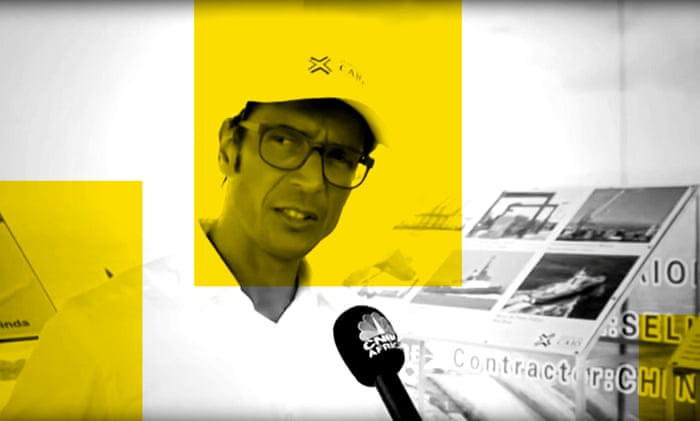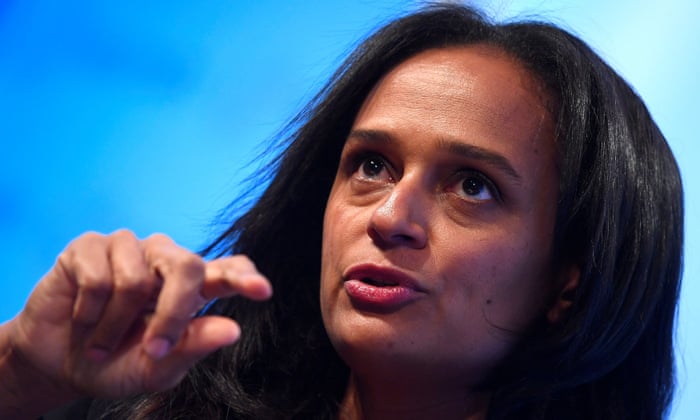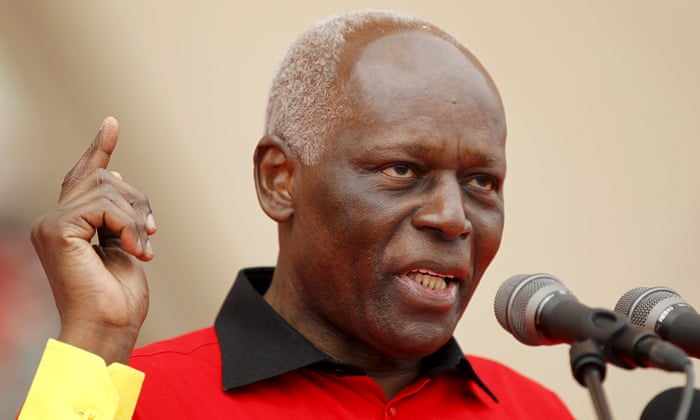A Brief Colonial History Of Ceylon(SriLanka)
Sri Lanka: One Island Two Nations
A Brief Colonial History Of Ceylon(SriLanka)
Sri Lanka: One Island Two Nations
(Full Story)
Search This Blog
Back to 500BC.
==========================
Thiranjala Weerasinghe sj.- One Island Two Nations
?????????????????????????????????????????????????Thursday, November 9, 2017
Angola sovereign wealth fund's manager used its cash for his own projects
Jean-Claude Bastos de Morais denies conflict of interest as Paradise Papers show he stands to benefit from investments
Jean-Claude Bastos de Morais. Composite: Guardian design
 David Pegg-Tuesday 7 November 2017 18.00 GMT
David Pegg-Tuesday 7 November 2017 18.00 GMTThe coast of Cabinda is a mass of cranes, lorries, excavators and high-visibility jackets: all the hallmarks of a construction boom. It is a remarkable transformation for Angola, which endured decades of civil war that only came to an end in 2002. Slowly being assembled on the coastline is Port of Caio, an ambitious deep-sea harbour project that reflects a vision of the country’s future as a beacon of prosperity on the west coast of Africa.
Giving an interview in the middle of the construction zone is Jean-Claude Bastos de Morais, who is describing how the port will benefit the whole of Angola. As the owner and manager of the facility, Bastos and his company also stand to benefit handsomely.
Bastos recounts how after personally spending about $70m (£53m) on preliminary costs, mostly for various technical studies, “we then looked for a strategic long-term partner who could help us in the next phases of this investment”, and as a result, “we invited the sovereign wealth fund of Angola to invest”.
Although undeniably true, it is an answer that neglects to mention that the cash of the Angolan sovereign wealth fund invited to invest in his deep-sea port is managed by a company called Quantum Global, owned and controlled by Bastos.
He also stands to benefit in other instances, because the investment is one of at least four identified in the Paradise Papers in which Angolan funds managed by Bastos were invested in assets in which he held an interest.
Bastos does not dispute any of this: indeed, in a letter to the Guardian, he argued that as a shareholder in the investments, his goals were aligned with those of the fund, and he also volunteered that new investments were currently under discussion.
“Due to ongoing discussions with various stakeholders to develop new investment projects where I directly own a stake, I can’t disclose new details at this point in time,” he said.
However he objected to any characterisation of the above as conflicts of interest: “We do not view these investments as conflicted. We view these investments as having aligned interests. All shareholders’ interests are aligned for the growth and ultimate success of every investment.”
Though perfectly legal, such arrangements raise uneasy questions about public accountability, particularly in Angola, where the ruling elite, and those with whom they choose to surround themselves, have been able to accrue the most extraordinary private wealth while ordinary citizens suffer grinding poverty.
José Eduardo dos Santos, the country’s president from 1979 until earlier this year, is the father to Africa’s richest woman, Isabel dos Santos, whose estimated $3.4bn fortune is likely to grow after her father appointed her to run the state oil company. By contrast, the outlook for ordinary Angolan women is bleak: the maternal mortality rate is one of the world’s highest at 610 per 100,000 births. Meanwhile, 20% of children die before the age of five, most of them from malnutrition.
Bastos believes venture capitalism represents a solution to Angola’s challenges. Born in Switzerland in 1967, he describes how his heritage inspired him to apply his talent for the world of finance to the challenge of African development.

Isabel dos Santos, Africa’s richest woman, who runs Angola’s state oil company. Photograph: Toby Melville/Reuters
“Growing up, I had promised my late Angolan grandmother that I would do my part to give back to Africa,” he says on his website. “I have made it my life’s focus to fulfil that promise.”
He appears to have committed significant personal resources towards this end, creating the African Innovation Foundation, which awards annual prizes to inventors, as well as the African Law Library, which provides free, easy access to legislation.
In 2012, Dos Santos announced the formalisation of the Fundo Soberano de Angola (FSDEA), a $5bn sovereign wealth fund that would “promote growth, prosperity and social and economic development across Angola”. Appointed as chairman of the fund’s board of directors was José Filomeno dos Santos, 34 – the president’s son.
Selected to manage the fund’s endowment was Quantum Global. Little known outside its role managing investments for the Angolan central bank, Quantum received the contract without competitive tender.
This was not uncontroversial: critics observed that Bastos had previously founded and managed Angola’s first investment bank, Banco Quantum Capital, where the president’s son was appointed as a director (he resigned the position and sold his shares upon becoming FSDEA chairman). The two men are said to be friends, and Bastos has been described as a “mentor” to the younger Dos Santos.
Bastos denied that his relationship with the former president’s son had played any role in the appointment.
“The true reason for Quantum’s selection was that it performed extremely
well on an investment management mandate for the Angolan central bank
during the recession,” he said. The FSDEA said Quantum had been selected
“because of its outstanding performance on previous mandates with the
Angolan authorities”.
The $3bn assigned to Quantum was divided into seven funds for different types of investment including infrastructure, hotels and timber.
In 2014, during which only two of the funds were active for seven months, Quantum received management fees of $29m. For the same period, $13m appears to have been paid in dividends to QG Investment Ltd, a company incorporated in the British Virgin Islands and owned by Bastos. “As far as the payments to me are concerned, I am earning – as any other shareholder – the dividends out of the distributions of my companies,” he said.
He said Quantum was compensated according to industry standards and all fees had been properly disclosed and audited by Deloitte.
The internal mechanics of Quantum were that for each of the seven funds, an “investment committee” staffed by Bastos and others would advise on investments. It is the minutes of those investment committee meetings, contained in the Paradise Papers, that reveal that on at least three occasions besides Port of Caio, Bastos’s firm decided the money would be invested in projects in which he held an interest.
In 2015, it was decided that the hotel fund would invest in the High Tech Tower in the centre of Angola’s capital, Luanda. Architectural proposals for the project are breathtaking: two futuristic towers, intended to be the country’s tallest buildings upon completion, stand atop a planned four-storey shopping centre.

Jose Eduardo dos Santos addresses party supporters in Camama, outside the Angolan capital, Luanda, in 2012. Photograph: Siphiwe Sibeko/Reuters
According to a signed document in the Paradise Papers, the hotel fund agreed to spend $157m to buy into the project, $100m of which was in the form of assumption of debt already incurred by another project investor called High Tech Tower One Ltd. The remaining $57m would be paid in cash instalments once HTT One received the rights to the land on which the project would be built, this time from yet another company called Afrique Imo Corporation SA. The beneficial owner of both HTT One and Afrique was Bastos.
In another project, the committee decided in December 2014 to recommend an investment in a proposed three or four-star hotel in Cabinda, near the Port of Caio development. A total of $20m would be spent to enter an investment agreement alongside a company called Messo Mi Tchoa SA. That company’s owner is unknown, and there is no evidence that it belonged to Bastos. However, the Paradise Papers show he abstained from voting on the investment on the grounds that he held a “conflict of interest”.
And in another instance, Quantum recommended that FSDEA’s timber fund commit up to $89m to a pine and eucalyptus plantation. Once again, Bastos recused himself from deliberations due to a conflict of interest, and the investment committee voted in favour of spending several hundred thousand dollars on an initial due diligence budget.
Bastos said he had stepped down from the investment committee in 2016 “due to a more well-defined structure put in place by the group”. He said he had correctly disclosed all personal interests in projects in which FSDEA had become an investor, and FSDEA had not paid any brokerage or finder’s fees for the investments where he also held a stake.
Of the port project, he said: “The fully disclosed financial benefits I will rightfully derive as the initial shareholder who built this project into a solid investment will pale in comparison to the economic benefits the Port of Caio will deliver to Angola and the people of Cabinda.”
He said his investment in the High Tech Tower represented his belief in the country’s long-term potential, and the financing structure underpinning the partnership had since changed.
The Paradise Papers identify another unusual wrinkle in both the cases in which Bastos recused himself from the committee due to conflicts of interest. Another member of the committee, Thomas Iten, is the chief financial officer of a small Swiss company called Turtle Management AG, which happens to be the private family office of Bastos, incorporated for the sole purpose of managing his personal wealth. Iten, who has never been publicly associated with FSDEA or Quantum Global, did not recuse himself.
Bastos declined to explain why this was not considered a conflict of interest, but said Iten had “a longstanding experience in Africa and is qualified to advise and challenge investment proposals brought to the investment committee within the well-established investment process”.
“It is important to understand that while foreign investors may see challenges in Africa, African investors like myself see these as significant opportunities,” he said. “I believe African investors can play a major role in transforming the state of the continent.”
